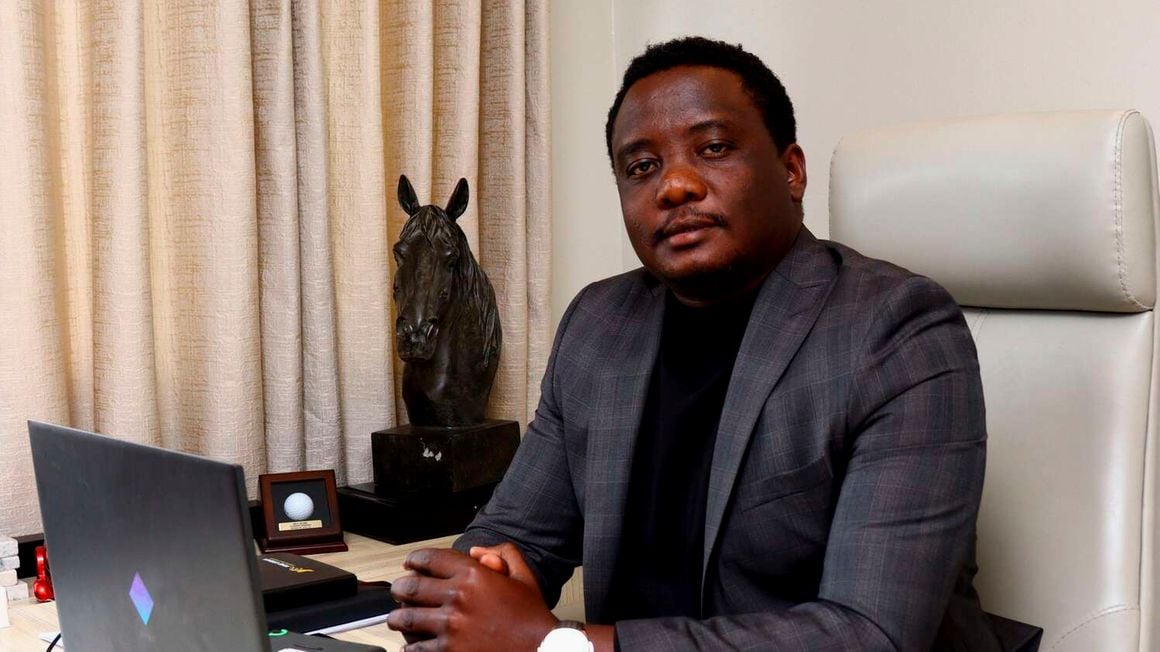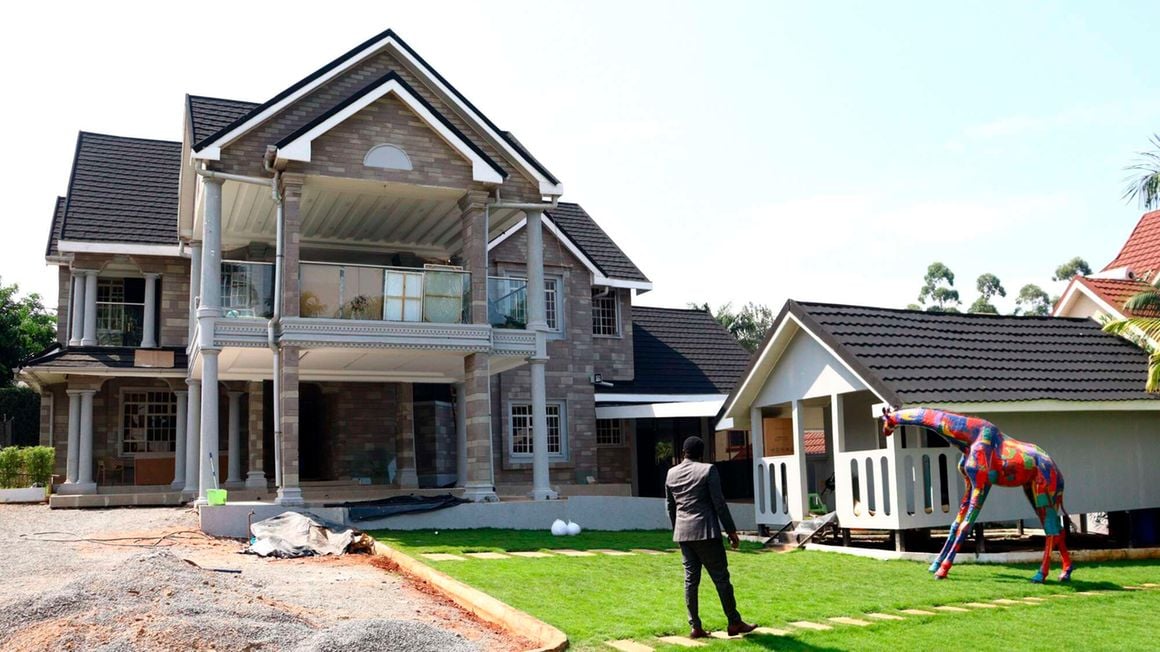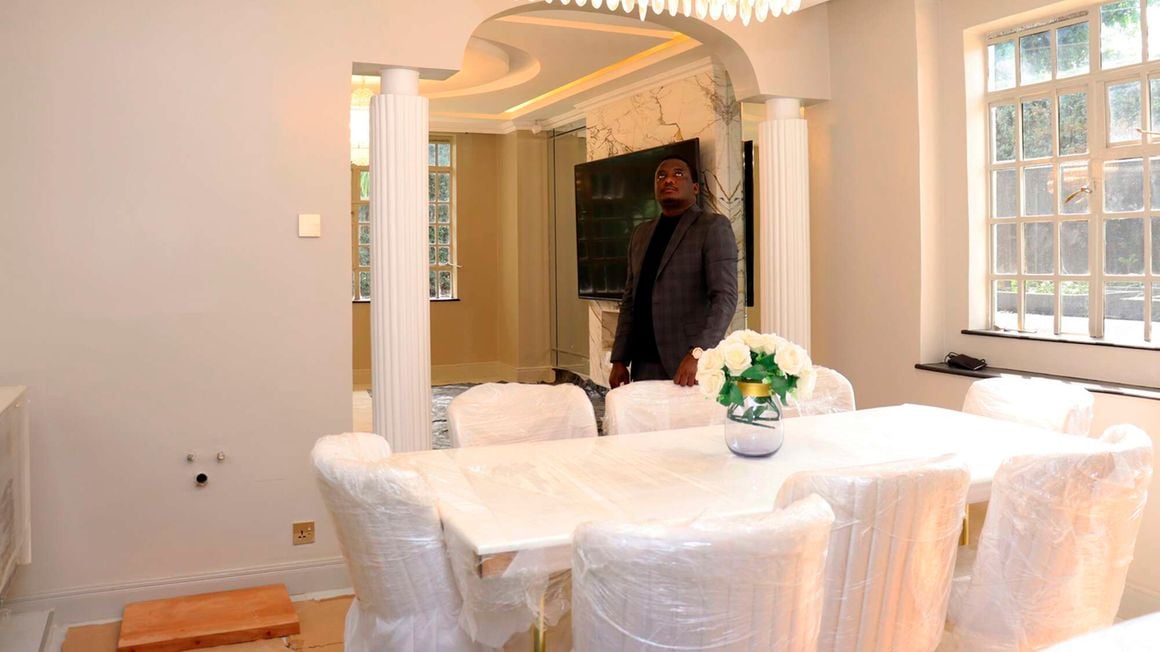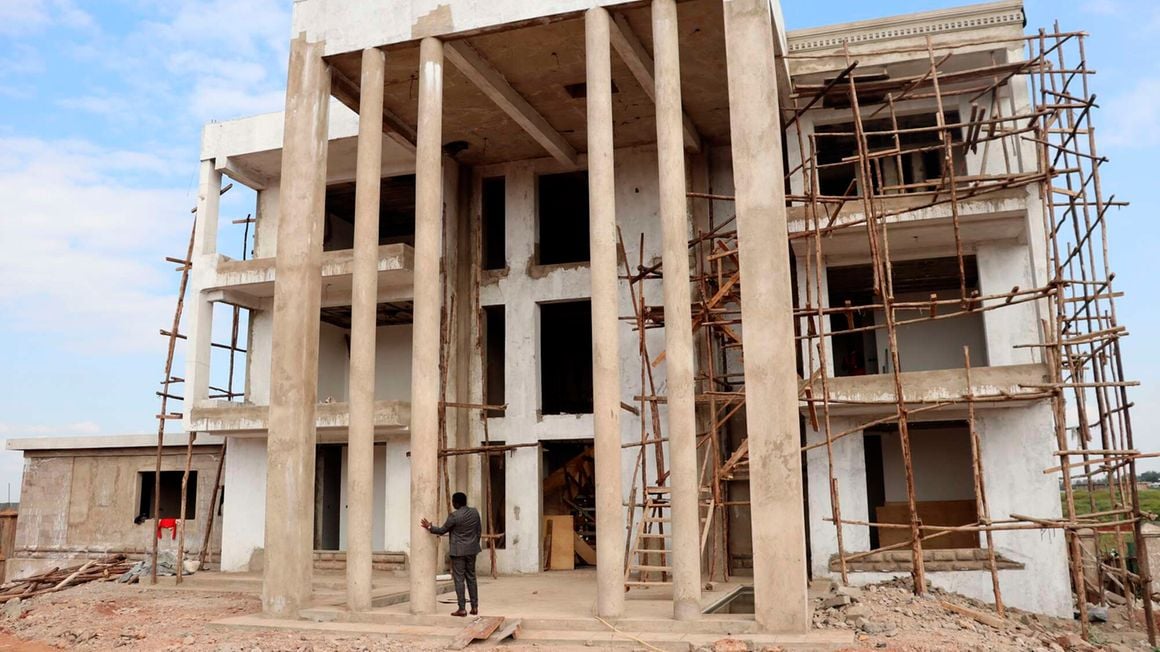
Fine Urban Construction and Interiors CEO Cleophas Nyagaka during an interview at his office premises in Rose Ave, Nairobi on June 22, 2023. PHOTO | BONFACE BOGITA | NMG
When Cleophas Nyagaka launched a small design workshop in Samburu back in
2013, he did not see the business transforming into a real estate firm that would take on major projects both in Kenya and abroad within a decade.From a tender age, the entrepreneur demonstrated an inherent passion for art and design. Often, he would use his creativity to adorn his mother’s house with his artwork.
Growing up, Mr Nyagaka had hoped that one day, he would become a professional interior designer, whom people would task with transforming their homes and offices into visually appealing spaces.
He was lucky to secure a mentor who supported him to pursue a real estate course in South Africa.
Fine Urban Construction and Interiors CEO Cleophas Nyagaka at an ongoing project in Muthaiga, Nairobi on June 22, 2023. PHOTO | BONFACE BOGITA | NMG
Mr Nyagaka returned to Kenya and secured a job at the National Construction Authority. The remuneration was good, but his passion for design entrepreneurship persisted.
“Even in professional settings, I would find myself analysing rooms during meetings, contemplating ways to enhance their appeal,” he told the Business Daily.
The entrepreneur decided to start his career in design by launching a small workshop for designing and selling house furnishings.
This workshop would later grow into what is now Fine Urban Construction and Interiors, a Nairobi-based real estate company.
However, things were not very easy for the entrepreneur. Like many other startups, creating brand awareness and trust was a challenge, and he had to make a lot of sacrifices to achieve this.
“At times you see the final product looking good, but before that was possible there was usually a lot of work and struggle that went on behind the scenes. I would approach some of the clients who bought items such as furniture from us and request them to redesign or repaint their homes, even if it was on a pro bono basis,” says Mr Nyagaka.
His breakthrough eventually came when he was allowed to design the interior of a hotel in Samburu.
A portion of the earnings from this project would be allocated towards procuring a better office space in Nairobi, expanding the workforce, and transforming the business from solely an interior design firm into a full construction company.
“Interior design is closely linked to architecture. If I assess a house and find that a particular wall doesn’t fit well, I have to demolish it. That aspect falls under construction.
Many of the houses we worked on were outdated in design and functionality, and the clients desired an upgrade. That’s what prompted us to venture into full-scale construction,” explained Mr Nyagaka.
Fine Urban Construction and Interiors CEO Cleophas Nyagaka at an ongoing project in Muthaiga, Nairobi on June 22, 2023. PHOTO | BONFACE BOGITA | NMG
Today, from a workforce of only two, Fine Urban Construction and Interiors has grown to employ more than 30 permanent staff and several others on contract. The firm has ongoing projects in Kenya and abroad.
They attribute much of their success to listening to advice from people who have travelled the same road before, client focus, and building trustworthy relationships.
Digital marketing has also played an important part in the company’s growth, as the firm showcases most of its ongoing and completed projects on various social media platforms.
“We get enquiries from people in different parts of Africa including Cameroon, Uganda, South Africa, Nigeria, Ghana and Rwanda, who from watching our content on YouTube have engaged our services for both residential and commercial property development,” says Mr Nyagaka.
Some of their house designs are locally inspired, but they also get inspiration from abroad, having visited several foreign destinations, including the Swedish Palace in Dubai and other places within Africa, Asia and Europe.
Despite the progress, his business still faces its fair share of challenges. For instance, given that theirs is a detail-oriented field, getting quality labour and skilled workmanship is not very easy.
“More often than not, we contract people who have the basic skills and invest in their training to upskill them. We also work with university students, by offering internship and training opportunities so that we can absorb the right talent,” says Mr Nyagaka.
To maintain quality levels, he says they only take on a specific number of projects at a time. He also hopes to take this further by manufacturing their interior furnishings in future.
Fine Urban Construction and Interiors CEO Cleophas Nyagaka inspects the progress of a project at Tatu City, Kiambu on June 22, 2023. PHOTO | BONFACE BOGITA | NMG
“The challenge is we want to source materials locally, but the quality here is not always the best. Most counties in Kenya have good raw materials, which through value addition can make good finishes. Kisii, for instance, has very good soapstone. Bungoma also has very good natural stones that can be carved out to make sculptures,” he says.
The entrepreneur says they would also want to connect with the diaspora market, consisting of individuals who are eager to invest in real estate back home, but are uncertain of which contractors to count on to manage their projects.
→ mmwambonu@ke.nationmedia.com




No comments :
Post a Comment